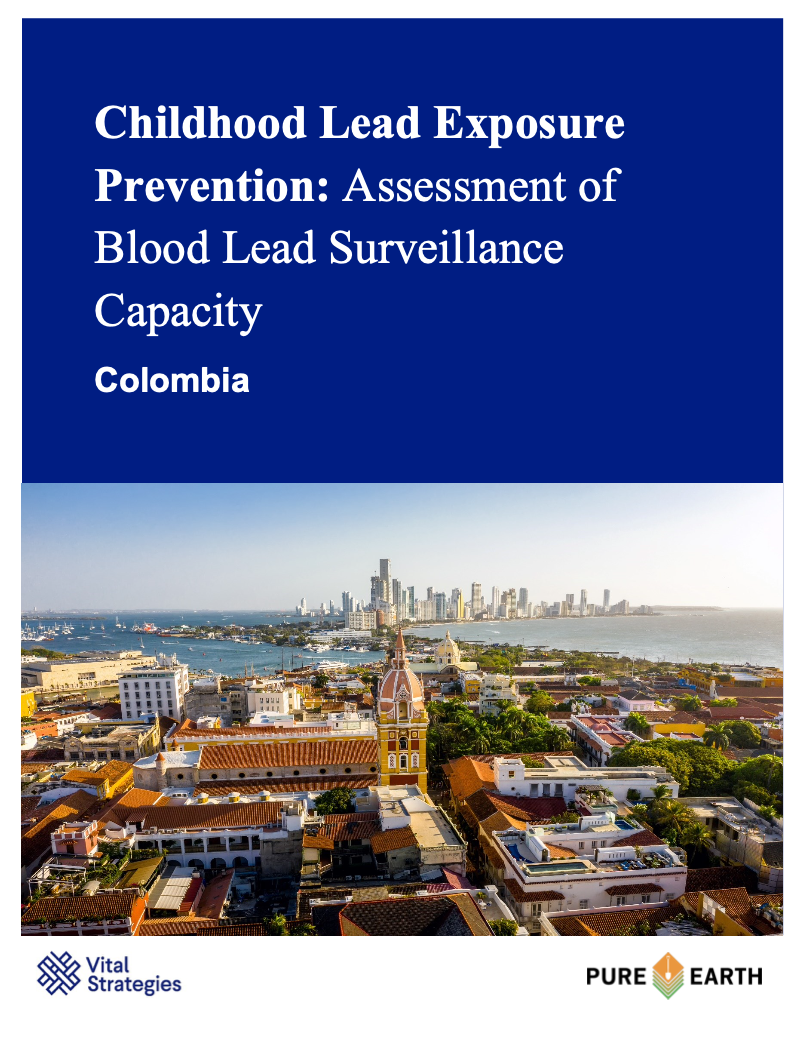Lead exposure is a significant public health concern in Colombia, with over a half million children estimated to have a blood lead level (BLL) above 5 micrograms per deciliter (µg/dL), a level that requires action according to WHO.
The Colombian Congress enacted Law 2041 in 2020, protecting people’s right to develop physically and intellectually in a lead-free environment. It calls for monitoring blood lead levels among children to understand their exposure and provide timely treatment. To support the implementation of this law, Pure Earth and Vital Strategies are exploring the capacity to establish childhood blood lead surveillance in Colombia under a new project titled “Strengthening Health Systems to Reduce Lead Exposure.” To enable this effort, we conducted this capacity assessment of Colombia’s existing infrastructure and resources to support a national blood lead surveillance system.
In this report, we summarized our findings on the current policy landscape, key stakeholders in lead exposure management, public health surveillance system, and laboratory capacity for testing blood lead levels in the population.
Recent Abstracts
Strengthening Health Systems to Address Air Pollution in Ethiopia
Policy Brief: Childhood Blood Lead Surveillance in Indonesia – Findings and Policy Recommendations
Impact of Blue Lanes on Road Safety: Crashes, Speed and Motorcyclists’ Perceptions in…
Impacto da Faixa Azul na Segurança Viária: Sinistros, velocidade e percepções de motociclistas…
Culture is Medicine- a Model of Indigenous Harm Reduction in Practice
Trouble Brewing – The Case for Alcohol Policy (Second Edition)
Lessons from Vietnam’s Campaign for a Tax on Sugar-Sweetened Beverages
Principles of Alcohol Taxation
Clean Air in Jakarta: Gaps and Possibilities Toward Low Emission Practices
Public Attitudes Towards Alcohol Policy: South Africa
